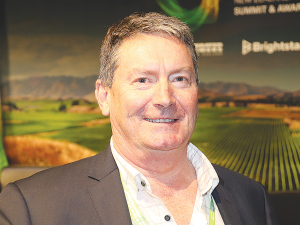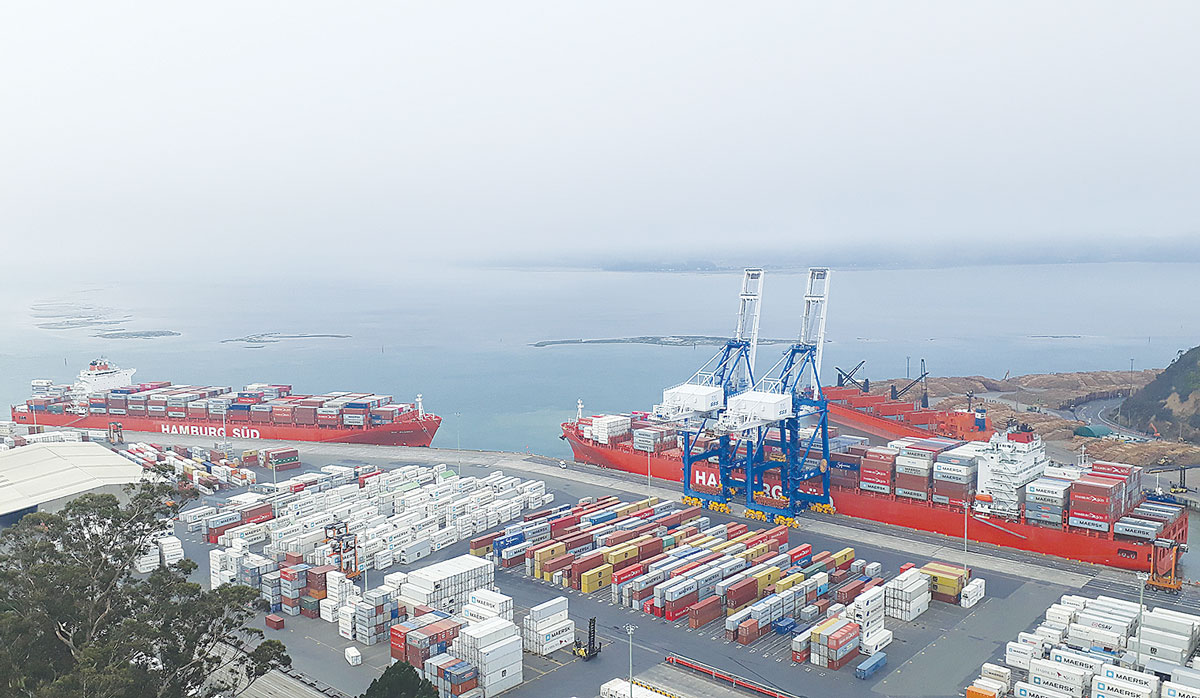T&G Global trims half-year losses
Food and vegetable grower and marketer T&G Global has trimmed its half-year losses compared to last year, as it makes progress delivering its strategy and continues to recover from the impact of Cyclone Gabrielle.
 T&G Global’s Simon Beale says, at this stage, it’s too hard to estimate exactly the size of the export apple crop.
T&G Global’s Simon Beale says, at this stage, it’s too hard to estimate exactly the size of the export apple crop.
The amount of blossom on the country's apple trees in September will be the first indication of how much fruit NZ may have to ship overseas in the coming season.
Logistics manager for T&G Global, Simon Beale, says at this stage it's too hard to estimate exactly the size of the export apple crop.
He says the word is that the apple crop will be down by 30% and that kiwifruit will also take a hit due to adverse weather.
Beale told Hort News that the jury is still out on how many apples will be available from Hawke's Bay because no one knows how the trees damaged by Cyclone Gabrielle will perform. He says the problems in Hawke's Bay may continue for a number of years to come with the volume progressively rising.
For Beale, whose role is to get the fruit to different markets all around the world, the serious planning begins after the trees blossom.
"From then on we start committing volumes to the shipping lines for the different markets and that includes imports as well as exports," he told Hort News.
"Once we get our volumes sorted out, we start locking in the volumes for weekly shipping by region and by discharge port using the different services we have got on offer by the shipping lines."
Beale says most of their fruit goes out through the ports of Napier, Nelson and Otago but some is transhipped through Tauranga onto other vessels. He says the shipping lines are very accommodating and understand the flow of primary products, which can vary seasonally due to weather or other circumstances.
"We have a very good relationship with them," he explains.
"They are pretty adaptable - especially if we give them an early indication if something goes wrong because it gives them a chance to fill those containers up with other cargo."
Lowering Carbon Footprint
With the issue of emissions high on the primary sector agenda, Beale says shipping companies are working to reduce emissions from their fleets.
He says they have set various target dates - 2025, 2030 and 2050 - to progressively reduce these.
 |
|---|
|
With emissions high on the primary sector agenda, shipping companies are working to reduce emissions from their fleets, says Beale. |
"About three years ago we got low sulphur fuel and that took out something like 15% of the sulphur out of the fuel."
Beale says ships that can run on biofuels are now being built and other fuels such as hydrogen and LNG are being used. But he says, in the end, not all ships may be converted to run on low emission fuels. However, these vessels will be required to steam at a slower speed to reduce their pollution.
Harvesting is underway of one of New Zealand’s rarest and most unusual fruit - persimmons.
Recent rain has offered respite for some from the ongoing drought.
New Zealand's TBfree programme has made great progress in reducing the impact of the disease on livestock herds, but there’s still a long way to go, according to Beef+Lamb NZ.
With much of the North Island experiencing drought this summer and climate change projected to bring drier and hotter conditions, securing New Zealand’s freshwater resilience is vital, according to state-owned GNS Science.
OPINION: Otago farmer and NZ First MP Mark Patterson is humble about the role that he’s played in mandating government agencies to use wool wherever possible in new and refurbished buildings.
For Wonky Box co-founder Angus Simms, the decision to open the service to those in rural areas is a personal one.

OPINION: The appendage swinging contest between the US and China continues, with China hitting back with a new rate of…
OPINION: The irony of President Trump’s tariff obsession is that the worst damage may be done to his own people.